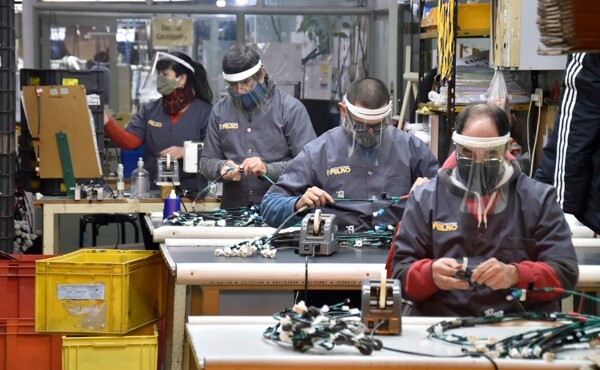
The Chamber of Deputies of Argentina voted in favor of suspending the primary elections for this year's midterm elections, a measure that would further allow President Javier Milei to consolidate power within his own party. The chamber voted on Thursday 162-55 in favor of suspending the Open, Simultaneous, and Mandatory Primaries, or PASO.
By eliminating the PASO before the midterm elections, Milei will have more time to politically benefit from Argentina's economic recovery. It would also delay the deadline for defining his list of candidates for the second half of the year, giving him more leeway to recruit legislators from a rival coalition to run under his party's banner.
"Not having primaries will benefit parties with strong leadership," said Marcelo J. García, director for the Americas at the political risk consultancy Horizon Engage. The ruling party La Libertad Avanza is led by President Milei and his sister Karina Milei, who will write the list of candidates in each province, which does not happen in any opposition party, García explained.
Milei has scored several victories in recent months. His austerity campaign helped Argentina achieve its first fiscal surplus in over a decade without significantly diminishing his approval ratings, which remain around 47 percent. Monthly inflation has dropped significantly, and the nation exited recession in the third quarter of last year.
The measure to suspend the PASO will now move to the Senate for consideration. Two dozen legislators abstained from voting. Analysts predict that the Senate would also approve the suspension of the PASO, although Milei's party only holds six of the 72 seats. This measure would allow former President Cristina Kirchner, who leads the Peronist party with the most legislators, to consolidate power within her ranks.
By avoiding primaries, Milei will have more control over his party's candidate list. The PASO, created in 2009, have become a nightmare for pollsters and parties of all stripes, often shaking up the markets. Although they are not binding, all parties vote on the same day, creating a nationwide poll a few months before the official elections.
Suspending the PASO will shorten this year's electoral campaign, feeding into Milei's anti-establishment political narrative, García pointed out. The elections will be held on October 26.














